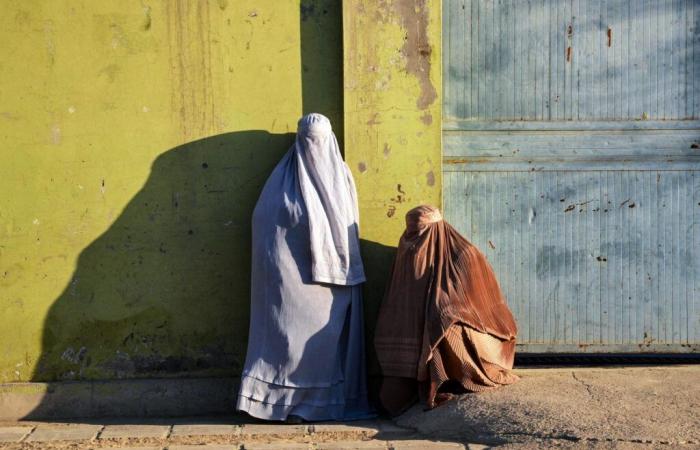The restriction of the rights of Afghan women continues into the home and becomes more and more untenable. After banning them from access to parks, universities, restaurants and beauty salons, the administrative affairs office of the Taliban regime announced on Wednesday, December 29, that women will no longer be able to live in rooms with windows facing outside. The goal? Do “respect their privacy”.
“Seeing women working in kitchens, in courtyards or collecting water from wells can lead to obscene acts,” indicates the decree broadcast on In existing buildings, owners will have to build walls to hide these windows or take any action to comply with the ban.
Since coming to power in 2021, the Taliban have issued more than a hundred decrees aimed at restricting the rights of women and their freedom to move in public spaces. Three days earlier, the government reaffirmed the ban on NGOs employing women, enacted in December 2022. This time, they are simply threatened with suspension or revocation in the event of non-compliance with the new regulation. .
Last hope confiscated
Earlier in December, medical training courses closed their doors to women. Positions as nurses, midwives, laboratory workers or dental assistants are now inaccessible to them. The announcement had the effect of yet another hammer blow. After being deprived of secondary education from 2021, then of higher education, many women turned to medical institutes as a last refuge.
This measure is also very worrying for the future of the already fragile Afghan health system. The country suffers from one of the highest maternal mortality rates in the world: a woman dies there every two hours due to complications related to childbirth, according to the United Nations Population Fund. The lack of trained personnel risks worsening the situation.
Furthermore, the proliferation of restrictive decrees is seriously harming the mental health of women. Since 2021, data collected, notably by the Afghan women-led media Zan Times and the British daily The Guardianshow an explosion in the number of suicides among women. If, according to the World Health Organization, men are almost twice as likely to commit suicide as women internationally, Afghanistan defies this reality: women alone represent 80% of suicide attempts, according to the Afghan media KabulNow. For psychologists, it is less a desire to die than a desire to escape unbearable mental pain.






